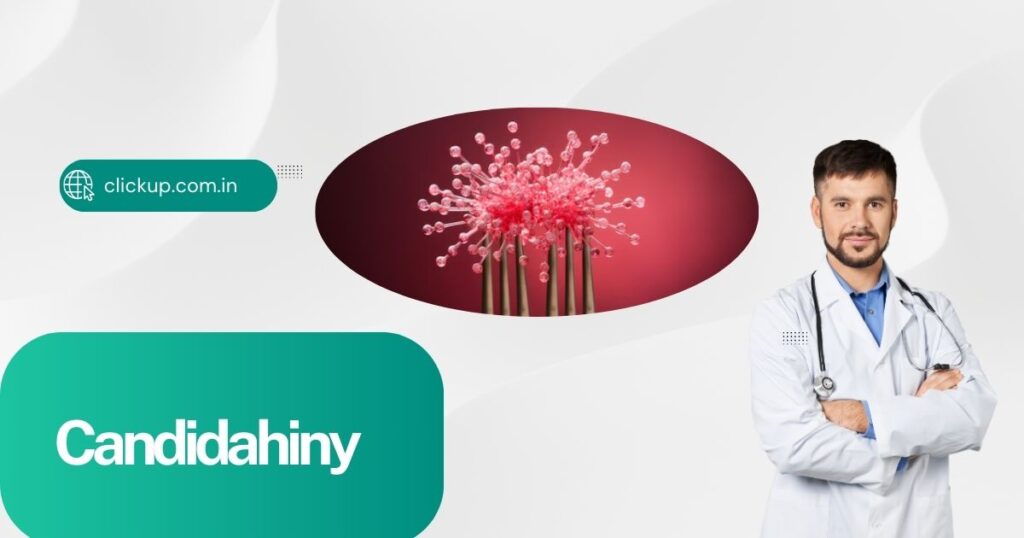Candidahiny is a term used to describe a condition linked to the overgrowth of Candida, a type of yeast that naturally resides in the human body. This article explores the causes, symptoms, and treatment options for it, offering insights into managing this condition effectively.
What is Candidahiny?
Candidahiny refers to an overgrowth of Candida, particularly in areas like the digestive tract, skin, and mucous membranes. While Candida is typically harmless, an imbalance can lead to uncomfortable symptoms and health issues.
Causes of Candidahiny
Several factors can contribute to the development of It. These include weakened immune systems, prolonged antibiotic use, high sugar diets, and hormonal imbalances. Understanding these causes is crucial for prevention and management.
Common Symptoms of Candidahiny
The symptoms of It can vary depending on the affected area. Common signs include fatigue, digestive issues, recurrent infections, and skin irritations. Recognizing these symptoms early can help in seeking timely treatment.
Candidahiny and Digestive Health
It often impacts digestive health, leading to symptoms like bloating, diarrhea, and constipation. The overgrowth of Candida disrupts the balance of gut flora, causing discomfort and potential long-term issues if left untreated.
Impact on Skin and Mucous Membranes
Skin infections and oral thrush are common manifestations of it. These conditions are characterized by redness, itching, and white patches, often requiring topical treatments to alleviate symptoms.
Diagnosing Candidahiny
Proper diagnosis of It involves a combination of medical history, physical examination, and laboratory tests. These tests may include stool analysis, blood tests, and cultures to confirm the presence of Candida overgrowth.
Treatment Options for Candidahiny
Treatment for It typically involves antifungal medications, dietary changes, and probiotics. Antifungal drugs like fluconazole and nystatin are commonly prescribed to combat Candida overgrowth.
Dietary Changes to Manage Candidahiny
Diet plays a crucial role in managing it. Reducing sugar intake, avoiding processed foods, and incorporating probiotics can help restore gut health and reduce Candida overgrowth.
Probiotics and Candidahiny
Probiotics are beneficial bacteria that help maintain a healthy balance of gut flora. Including probiotics in your diet can aid in combating Candida overgrowth and supporting overall digestive health.
Home Remedies for Candidahiny
Several home remedies, such as coconut oil, apple cider vinegar, and garlic, are believed to have antifungal properties. While these remedies can offer relief, they should be used alongside medical treatments for best results.
Prevention of Candidahiny
Preventing It involves maintaining a healthy immune system, following a balanced diet, and avoiding excessive use of antibiotics. Regular exercise and stress management also play a role in prevention.
Complications of Untreated Candidahiny
If left untreated, It can lead to more severe health issues such as systemic infections and weakened immune response. Early diagnosis and treatment are essential to avoid complications.
Lifestyle Changes for Long-Term Management
Long-term management of It requires lifestyle changes, including a balanced diet, regular exercise, and stress management. These changes help maintain a healthy immune system and prevent recurrences.
Conclusion
It is a manageable condition with the right approach. Understanding its causes, recognizing symptoms, and adhering to appropriate treatment plans can help individuals lead healthier lives free from the discomfort of Candida overgrowth.
FAQs
What triggers candidahiny?
It is triggered by factors such as weakened immune systems, prolonged antibiotic use, high sugar diets, and hormonal imbalances.
How can I prevent candidahiny?
Prevention involves maintaining a healthy diet, managing stress, avoiding excessive antibiotics, and supporting immune health through regular exercise and probiotics.
Are there natural remedies for candidahiny?
Yes, natural remedies like coconut oil, apple cider vinegar, and garlic have antifungal properties and can be used alongside medical treatments.
What dietary changes help with candidahiny?
Reducing sugar and processed foods while incorporating probiotics and antifungal foods can help manage it.
Can candidahiny cause serious health issues?
If untreated, It can lead to complications like systemic infections and weakened immune responses, making early diagnosis and treatment important.







